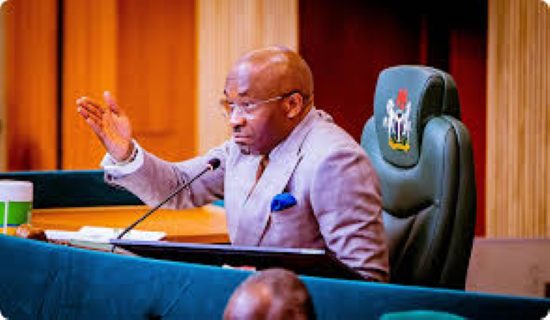The Deputy Speaker of the House of Representatives, Rep. Benjamin Kalu, has called on Nigerian youths to take active leadership roles in shaping the country’s democracy, emphasizing the use of digital innovation and civic participation ahead of the 2027 general elections.
Kalu made the call on Wednesday at the opening of the 2025 CiTech Summit, organized by the National Institute for Legislative and Democratic Studies (NILDS) to mark the 10th anniversary of World Youth Skills Day. The theme for the 2025 celebration is “Youth Empowerment through Artificial Intelligence (AI) and Digital Skills,” while the summit focused on “The Road to 2027: Leveraging AI and Digital Innovation to Deepen Citizen Participation and Inclusive Governance.”
Kalu stressed that Nigeria’s future depends on harnessing its vast digital potential to build an inclusive, transparent, and technology-driven democratic system. Despite having over 103 million internet users and more than 205 million active mobile connections—representing 90.7 percent of the population—he noted that the country still faces significant digital inequality.
“Only 45.5 percent of Nigerians have internet access nationally, and in rural areas, it’s just 23 percent,” he said. “This dichotomy defines our 2027 challenge: how do we build an inclusive, digitally enabled democracy when more than half of our citizens remain digitally excluded?”
Kalu urged youths to leverage digital tools not merely as an end, but as a means to strengthen democracy. “Let us build a Nigeria where every citizen, regardless of location, gender, or socioeconomic status, has a voice, a vote, and a stake in our democratic future,” he said.
The deputy speaker also highlighted the National Assembly’s commitment to supporting young people in leadership roles. “We are reviewing legislative frameworks to reduce financial barriers to political participation, enhance youth representation in party structures, and create pathways for youth-led civic innovation,” he said.
However, Kalu added that legislation alone is not enough. “Youths must organize, mobilize, and claim their rightful place in Nigeria’s democratic future. Use digital platforms not just for consumption, but for creation. Build civic tech tools to track government projects, monitor budgets, and expose corruption. Democracy is not a spectator sport; it requires active, sustained, and strategic participation,” he said.
Prof. Abubakar Suliaman, Director-General of NILDS, encouraged youths to think boldly about the role of technology in governance. “The future of our democracy depends on the engagement of Nigerian youth—their ideas, energy, and commitment to justice and equity. Together, we can build an inclusive and forward-looking democratic system,” he said.
Mr. Yusuf Laidi, founder of ILEAD Africa, described the summit theme as a call to action. “As Nigeria approaches the 2027 elections, we must move beyond retrograde approaches to innovation. Technology should be a tool for transparency and accountability, ensuring governance reflects the voices and aspirations of the people,” he said.


